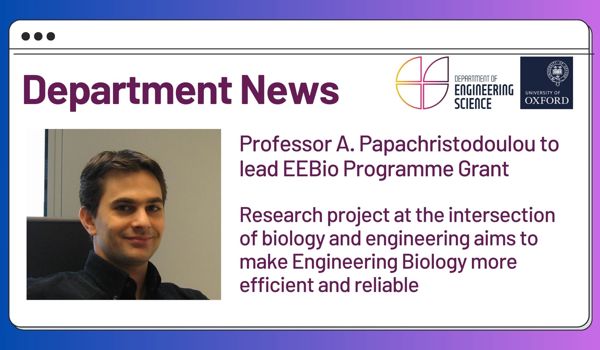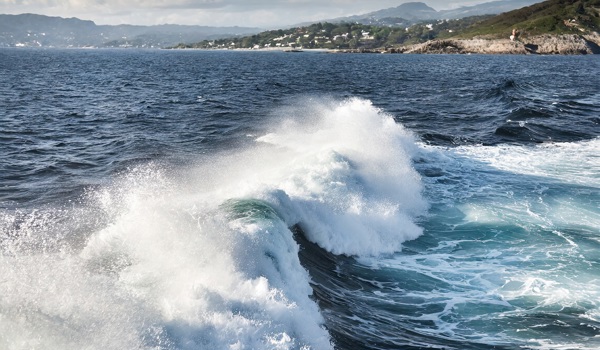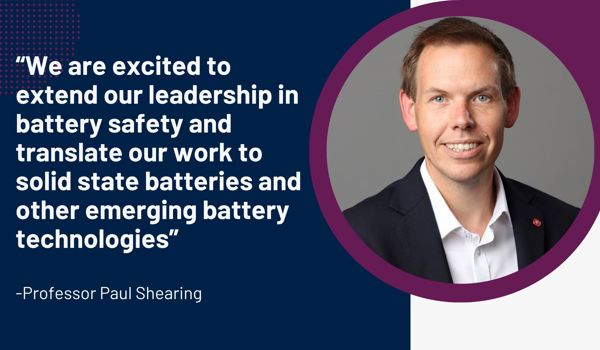26 Apr 2024
New cohort of 15 Eric and Wendy Schmidt AI in Science Postdoctoral Fellowships
University of Oxford one of nine leading research universities around the world selected to deliver the Eric and Wendy Schmidt AI in Science Postdoctoral Fellowship programme
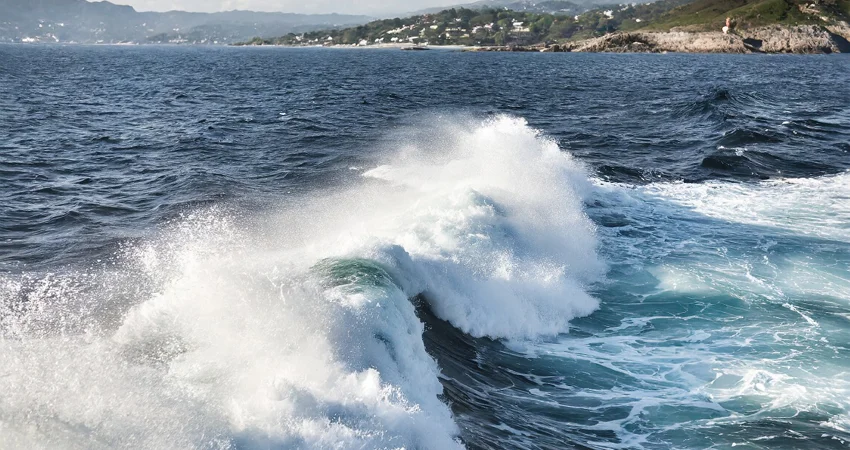
In October 2022 the University of Oxford became one of nine leading research universities around the world selected to deliver the Eric and Wendy Schmidt AI in Science Postdoctoral Fellowship programme. Ten Fellows were recruited to Oxford in 2023 and this year a further 15 Fellows are joining them.
The Fellowships, a programme of Schmidt Sciences, aims to accelerate the next scientific revolution by supporting talented postdoctoral researchers to apply AI techniques across the natural sciences, engineering and mathematical sciences. This initiative adds to Schmidt Sciences’ existing philanthropic efforts to support the development and application of AI in innovative ways.
The programme is cross-disciplinary, which gives it the ability to bring together different parts of the AI landscape in novel ways. Another key element of the AI in Science programme is the training aspect, providing Fellows with all they need as non-AI specialists to use AI in their respective research fields. In addition, the Eric and Wendy Schmidt AI in Science Postdoctoral Fellows have the opportunity of becoming Associate Research Fellows at the University’s newest College: Reuben College. Founded in 2019, Reuben College aspires to create a community of scholars embracing opportunities for interdisciplinary collaboration, and developing initiatives to generate wider impacts and positive benefits from research, entrepreneurship and public engagement.
Professor Jim Naismith, Head of Division for the Mathematical, Physical and Life Sciences, said: “Oxford stands at the forefront of AI research, and witnessing the transformative impact of the Schmidt AI in Science program on researchers within the MPLS Division is truly inspiring. It's remarkable to see how AI is envisioned to address a vast array of challenges, igniting imaginations and propelling innovation forward. We extend our heartfelt gratitude to Schmidt Sciences for their invaluable support and vision in making this pioneering program possible”.
Jialun Chen will be joining the Department of Engineering Science to study a machine learning based method for wave modelling in coastal areas. Having first visited Oxford in 2023, where he was hosted by Thomas Adcock, Professor of Engineering Science, Jialun was encouraged to apply for the Fellowship as he progressed his research work.
Professor Adcock says, “During the course of his fellowship, Eric will work with me to apply machine learning to ocean wave forecasting and I look forward to welcoming him at Oxford.”
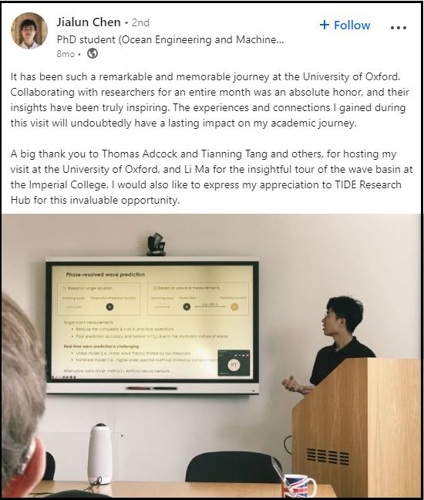
Accurate wave forecasting is crucial for various applications, such as optimising vessel route planning or designing robust and economical coastal structures. Numerical wave models are used for understanding ocean wave conditions, but they have limitations in coastal environments owing to factors such as complex shoreline and topography. Machine learning has the potential to achieve a precise representation of coastal wave dynamics, and could substantially reduce the computational costs.
“The Fellowship holders are expected to mentor members of the research group they join in AI methods, as well as pursue their own research,” Professor Adcock adds.
The other projects of the new Schmidt AI in Science Fellows are:
- Micah Bowles, Physics: ‘Robust multimodal galaxy embeddings’
- Daniel Dehtyriov, Maths: ‘Physics-based Deep Learning Models for Turbulent Flows with Applications to Renewable Energy’
- Lydia France, Biology: ‘Signatures of Motion: AI-Driven Insight into Dynamic Wing Morphing in Birds’
- Amy Hinsley, Biology: ‘Using AI to develop predictive ‘nowcasting’ of the illegal and unsustainable wildlife trade’
- Veronika Juraskova, Chemistry: ‘Different flavours of machine learning potentials for modelling processes in complex solvated environments’
- Milan Klöwer, Physics: ‘Climate predictions of precipitation probabilities with online learning’ C
- Henry Lloyd-Laney, Computer Science: ‘MLMLLM: Machine Learning, Multiple Likelihoods and the Laws of Metallo-proteins’
- Laura Mansfield, Physics: ‘Developing trustworthy machine learning parameterisations with uncertainty quantification for climate models’
- Brian Moser, Physics: ‘Probing the Higgs Potential with Graph Neural Networks’
- Cait Newport, Biology: ‘Lost landmarks: Using AI to investigate the impacts of turbidity on visually-guided navigation behaviour of wild reef fish’
- Jinzhao Sun, Physics: ‘Learning ground-state properties of quantum materials using neural network states’
- Jan Christoph Thiele, Chemistry: ‘From noise to knowledge: deep learning for weak signal analysis in ultra-sensitive microscopy and beyond’
- Samvida Venkatesh, Statistics: ‘Multi-pronged approach to systematically identify and validate the transcriptional effects of non-coding genetic variation’
- Mengyun Wang, Materials: ‘Intelligent quantum meta-optics enabled by machine learning for the generation and shaping of non-classical light’
Summaries of all the projects can be found on the MPLS website.

